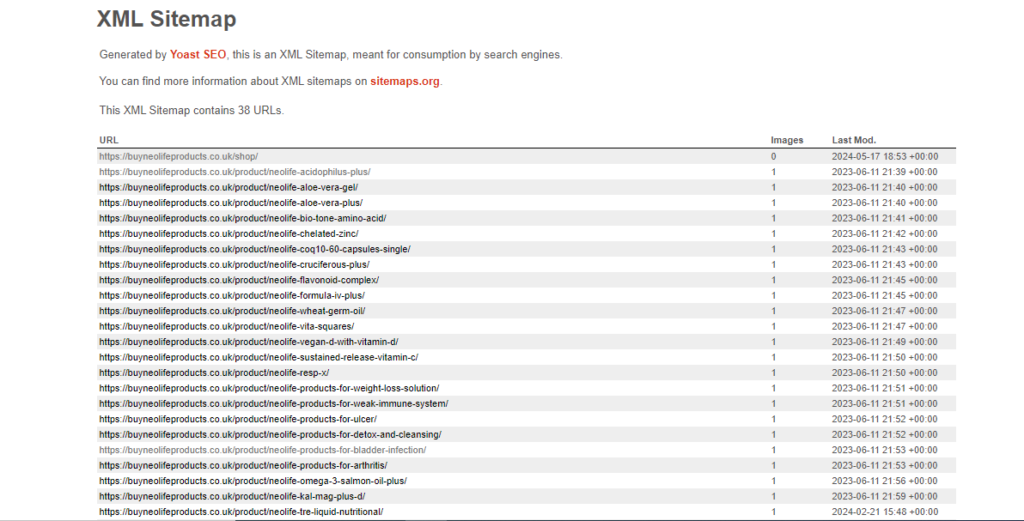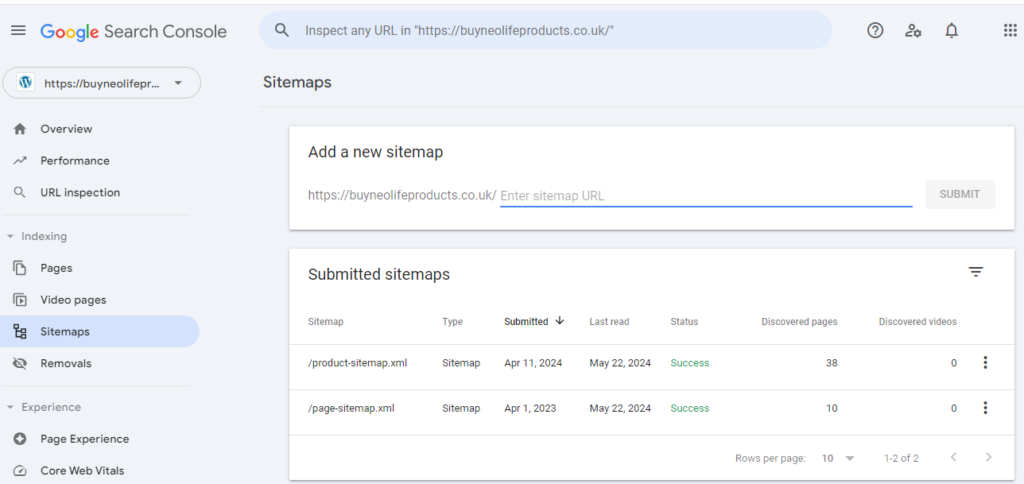There is intense competition to establish a strong online presence among small businesses because the majority of consumers rely on search engines to find products and services. Therefore, small businesses must optimize their websites for search engines. This is strategic because it puts small businesses at the forefront of online visibility.
Small businesses can harness the power of a well-crafted SEO strategy to increase their website’s visibility, drive targeted organic traffic, and in the long run, boost conversions which can impact the return on investment (ROI), making it a reliable tool for small businesses seeking to thrive in the digital space.
It is good to know that SEO is not a one-time task, it is a continuous process that involves careful planning, execution, monitoring, and staying up-to-date with the latest SEO trends and best practices.
Keyword Research and Analysis in SEO Strategy
Keyword research is important for a successful SEO strategy. It is the process of identifying the phrases and words your audience uses to search for products or services like yours. You can optimize your website and content to rank higher in search engine results pages (SERPs) when you understand what keywords are relevant to your business. It would also help you to drive more targeted traffic, and increase conversions.
Why you should use Keyword Research for your business
● Keyword research helps you understand the words and phrases your audience uses to search for products or services like yours.
● Identifying relevant keywords helps you optimize your website’s content, meta tags, and structure to rank higher in SERPs.
● Targeting the right keywords will attract targeted traffic that is more likely to convert.
● Conducting thorough keyword research will help you to identify gaps in the market and stay ahead of your competitors.
How to do a Keyword Research Analysis for Your Business
● Start by brainstorming a list of keywords related to your business, products, or services.
● Use tools like Google Keyword Planner, Ahrefs, SEMrush, or Moz Keyword Explorer to identify keywords and phrases.
● Analyze your competitors’ websites and content to identify keywords they’re targeting.
● Identify long-tail keywords that have lower search volume but are more specific to your business.
Tips for Effective Keyword Research for Your Business
● Focus on only specific keywords that are relevant to your business. Avoid broad keywords.
● Use long-tail keywords, they have a lower search volume and are more specific to your business.
● Use keyword research tools to identify keywords and phrases.
● Analyze your competitors’ websites and content to identify keywords they’re targeting.
Optimizing Your Website in SEO Strategy
When you’ve identified the right keywords, you should optimize your website to rank higher in search engine results pages as it helps search engines understand the structure and content of your website.
On-Page Optimization For Your Business
On-page optimization includes optimizing individual web pages to rank higher in SERPs. These are;
● Writing unique, descriptive title tags that accurately describe each page’s content.
● Developing compelling meta descriptions that entice users to click through from search engine results.
● Organizing content with header tags (H1-H6) to structure and hierarchy.
● Writing high-quality, engaging content that targets specific keywords.
● Optimizing images by using descriptive file names, alt tags, and compressing images.
Best Practices for On-Page Optimization For Your Business
● Title tags should accurately describe each page’s content and be unique.
● Meta descriptions should entice users to click through search engine results.
● Header tags help structure and organize content, making it easier for search engines to understand.
● Content should be high-quality, engaging, and target specific keywords.
● Images should be optimized by using descriptive file names, alt tags, and compressing images.
Technical Optimization In SEO Strategy
Technical optimization is the process of optimizing the technical aspects of your website to improve search engine crawlability and indexing. These are;
● Ensuring your website loads quickly (less than 3 seconds) to improve user experience and search engine rankings.
● Make sure your website is mobile-friendly and responsive, as this is now a key ranking factor.
● Installing an SSL certificate to secure your website and protect user data.
● Creating and submitting a sitemap to help search engines understand your website’s structure.
Content Creation and Marketing in SEO Strategy
Content is the brain of any successful SEO strategy. You should create High-quality, engaging content to retain your audience. This helps to drive profitable customer action.
The Importance of Creating Relevant Content For Your Business Content marketing is important in SEO for several reasons:
● High-quality content helps improve search engine rankings by increasing relevance and authority.
● Engaging content increases user engagement, reducing bounce rates and improving conversion rates.
● Valuable content attracts links from other websites, improving authority and rankings.
● Consistent content creation and marketing help build brand awareness and establish thought leadership.

Content Creation Strategies For Your Business
● Regularly posting informative and engaging blog posts that target specific keywords.
● Writing guest posts for other reputable websites to build backlinks and increase authority.
● Repurposing existing content into other formats like infographics, videos, and podcasts.
● Creating a content calendar to plan and organize content in advance.
Content Marketing Strategies For Your Business
● Promote your content on social media platforms to increase visibility and engagement.
● Send targeted email campaigns to your subscribers with valuable content.
● Partner with influencers to promote your business content to their followers.
● Promote your content through paid advertising and sponsored content.
Measuring SEO Content Success For Your Business
You need to understand what works and what doesn’t. Here are some key performance indicators (KPIs) to measure content success:
● Website traffic: Measure the number of visitors and page views.
● Engagement metrics: Measure likes, shares, comments, and other engagement metrics.
● Lead generation: Measure the number of leads generated from content.
● Conversion rates: Measure the number of conversions from content.
Building High-Quality Backlinks in SEO Strategy
Backlinks tell search engines that your website is a trusted and authoritative source.
Backlinks help your SEO in the following ways:
● High-quality backlinks improve search engine rankings by increasing authority and relevance.
● Backlinks can drive referral traffic to your website, increasing engagement and conversion rates.
● Backlinks from reputable websites help build brand awareness and establish thought leadership.

Strategies for Building High-Quality Backlinks For Your Business
● Write guest posts for reputable websites in your industry.
● Leave thoughtful comments on relevant blog posts and articles.
● Find broken links on other websites and replace them with a working link to a similar article on your website.
● Create resource pages that link to other high-quality websites in your industry.
● Reach out to journalists, influencers, and other websites to request backlinks.
Best Practices for Building Backlinks For Your Business
● Focus on building high-quality backlinks from reputable websites rather than quantity.
● Build backlinks from websites relevant to your industry or niche.
● Build backlinks from a variety of sources e.g. blogs, news sites, and resource pages.
● Avoid using spammy tactics like buying backlinks or participating in link schemes.
Tools for Building Backlinks For Your Business
● Ahrefs: A comprehensive SEO tool that includes backlink analysis and building features.
● Moz: An SEO tool that includes backlink analysis and building features.
● Hunter: A tool that helps you find email addresses for outreach and PR efforts.
● Respona: A tool that helps you find broken links and build backlinks.
Why Track and Measure Your SEO Strategy Success?
● Measuring success helps you understand the return on investment (ROI) of your SEO efforts.
● Tracking KPIs helps you identify areas that need improvement, allowing you to adjust your strategy.
● Measuring success helps you to optimize your SEO strategy for better results.
● Tracking and measuring success helps you stay ahead of the competition by identifying opportunities and threats.
Here are some KPIs to track and measure your SEO Strategy
● Website traffic: Monitors the number of visitors and page views.
● Search engine rankings: Tracks changes in search engine rankings for target keywords.
● Conversion rates: Measures the number of conversions, such as leads, sales, or sign-ups.
● Bounce rate: Monitors the percentage of visitors who leave your website immediately.
● Average session duration: Tracks the amount of time visitors spend on your website.
Tools for Tracking and Measuring Your SEO Strategy Success
● You can use Google Analytics to track website traffic, behaviour, and conversion rates.
● Make sure you use SEMrush for SEO audits, keyword research, and competitor analysis.
● Try Ahrefs for SEO audits, keyword research, and backlink analysis.
● Use Moz for SEO audits, keyword research, and link-building opportunities.
Best Practices for Tracking and Measuring Your SEO Strategy Success
● Establish specific, measurable goals for your SEO efforts.
● Use a combination of tools to get a comprehensive view of your SEO performance.
● Make sure you Track KPIs regularly to identify trends and areas for improvement.
● Adjust your SEO strategy based on the data and insights gathered.